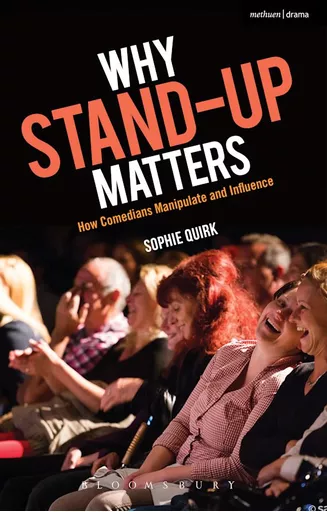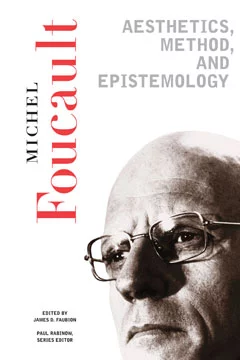
Is Crossing Boundaries Always Liberating?
Dick Zijp


Keywords:
humour, comedy, transgression, carnival, Hans Teeuwen, Dutch cabaret
Giselinde Kuipers, ‘Humor Styles and Symbolic Boundaries,’ Journal of Literary Theory 3, no. 2 (2009): p. 222.
Elise Kramer, ‘The Playful is Political: The Metapragmatics of Internet Rape Jokes,’ Language in Society 40, no. 2 (2011): pp. 137-168; Giselinde Kuipers, ‘The Politics of Humour in the Public Sphere: Cartoons, Power and Modernity in the First Transnational Humour Scandal,’ European Journal of Cultural Studies 14, no. 1 (2011): pp. 63-80.
The rise of the alt-right and ‘woke’ Twitter are their most recent manifestation.
Angela Nagle, Kill All Normies: Online Culture Wars from 4chan and Tumblr to Trump and the Alt-Right (Winchester: Zero Books, 2017).
Kurt Zindulka, ‘Monty Python Star John Cleese Says Woke Cancel Culture is Killing Comedy,’ Breitbart, August 4, 2020, www.breitbart.com/europe/2020/08/04/john-cleese-woke-cancel-culture-is-killing-comedy/.
Underneath these heated debates is a disagreement about the workings of transgressive comedy. Comedians like Cleese believe that transgressive comedy is liberating, while his opponents believe that racist and sexist jokes are not liberating at all but rather strengthen existing social hierarchies. In this article, I will explore the question: is transgressive comedy (and, by extension, transgressive art) necessarily liberating? I will argue that it is not, and that social and political context matters a lot.
Transgression and the Limit
Those who study art and (popular) culture often started as fanboys (or girls). It is thus no surprise that they tend to be very positive about the objects they study. In humour and comedy studies, comedians are celebrated for breaking taboos and speaking truth to power. The most cited thinker of humorous transgression is the Russian philosopher and literary theorist Mikhail Bakhtin (1895-1975), well-known for his notion of the carnivalesque.According to Bakhtin, medieval carnival was a feast of transgression: it toppled social hierarchies and playfully opposed the official culture of the Church. Bakhtin believes that the carnivalesque mode of humour, originally emerging from folk culture, spilled over to the high art of literature during the Renaissance.
Mikhail Bakhtin, Rabelais and His World (Bloomington: Indiana University Press, 1984 [1965]).
Nicholas Holm, Humour as Politics: The Political Aesthetics of Contemporary Comedy (London: Palgrave Macmillan, 2017), p. 49.
But Bakhtin’s theory has been criticised as well. It has been argued that carnival only offers a temporary suspension of social norms, a way for the lower classes to blow off steam.
Peter Stallybrass and Allon White, The Politics and Poetics of Transgression (Ithaca: Cornell University Press, 1986), p. 13.
According to Bataille, the world of humans—what we call ‘culture’—is a world of limits. For instance, most human cultures have put a ban on violence and have thus made violence a taboo. Bataille believes that this is what distinguishes humans from animals: as humans, we have regulated and put limits on animal life. But the taboo, Bataille continues, keeps fascinating us. It both repels and attracts us. The taboo—and comedians know this perhaps better than anyone—invites us to break it. This is something that modern humans have largely forgotten about, but which, for Bataille, can be seen perfectly in the pagan rituals of the past. Pagan ritual allowed people to transgress social boundaries under specific circumstances (such as the death of the king), after which order was restored.
Georges Bataille, Erotism: Death & Sensuality (San Francisco: City Lights Books, 1986 [1957]), p. 36.
Sophie Quirk, Why Stand-Up Matters: How Comedians Manipulate and Influence (London: Bloomsbury Methuen Drama, 2015), p. 36.
The critical implication of Bataille’s observations is that transgression is not so liberating as we tend to believe. It is a temporary suspension, not a removal of the taboo. This point has been radicalised by the French philosopher Michel Foucault (1926-1984). Foucault wonders: when exactly is the moment that the crossing of a limit, which we call transgression, transforms into its opposite, the affirmation or reinstallment of the limit? Is transgression not a movement back-and-forth between the limit and its crossing?
Michel Foucault, ‘A Preface to Transgression,’ in Aesthetics, Method, and Epistemology, ed. James Faubion (New York: The New Press, 1998 [1963]), pp. 75-87.
Postmodern Transgression
Hans Teeuwen (born in 1967 in Budel, North Brabant) is a popular Dutch comedian who rose to fame in the 1990s with his weird, transgressive comedy. He became a true sensation, especially among high school teens who could often quote entire sketches or songs.Ruud Buurman, ‘Het publiek van de toekomst,’ Utrechts Nieuwsblad, August 28, 2004.
Ivo Nieuwenhuis, ‘Hans Teeuwen en de ontmaskering van het Nederlandse cabaret,’ Tijdschrift Terras, October 25, 2012, tijdschriftterras.nl/hans-teeuwen/.
Teeuwen’s work fits in with what Philip Auslander has called ‘postmodern comedy.’ Auslander states: ‘Traditionally, stand-up comedians present a consistent persona to represent the perspective from which they make their comic observations. But just as some postmodernist playwrights created dramatic characters as collections of fragmentary texts rather than psychologically consistent beings, some stand-ups also eschewed the presentation of clearly defined comic personae.’
Philip Auslander, ‘Postmodernism and Performance,’ in The Cambridge Companion to Postmodernism, ed. Steven Connor (Cambridge: Cambridge University Press, 2004), p. 108.
Teeuwen spoke on stage with a thick Brabant accent, but could easily switch to a presumably more personal, ‘neutral’ voice. Teeuwen’s cruel fantasies and his switching between different accents and emotional registers kept the audience guessing about who this performer was and what he stood for. The lack of a stable persona contributed to the transgressive effect of Teeuwen’s comedy. As opposed to the moralism of previous comedians, he presented a comedy beyond good and evil.
Nieuwenhuis, ‘Hans Teeuwen.’
Anthony Julius, Transgressions: The Offences of Art (London: Thames & Hudson, 2002).
Hal Foster, ‘For a Concept of the Political in Contemporary Art,’ in Recodings: Art, Spectacle, Cultural Politics by Hal Foster (Seattle: Bay Press, 1985), pp. 139-156; Philip Auslander, Presence and Resistance: Postmodernism and Cultural Politics in Contemporary American Performance (Ann Arbor: University of Michigan Press, 1997).
Auslander 1997, pp. 21-34.
In the comedy scene of the 1990s and the early 2000s, there was a similar feeling that taboo-breaking belonged to the past.
Rene van der Velden, ‘Een zieke non in de bek schijten: Grofheid lijkt onverbiddelijke trend,’ De Stem, February 2, 1996.
Teeuwen’s style can be characterised as quite manipulative and aggressive. He often directly confronts and insults the audience, e.g., by going into the room, physically approaching or touching audience members and asking them threatening, impertinent questions. His performances thereby create a sense of captivity, which deny the audience the possibility to release the built-up tension through laughter.
A good example is Teeuwen’s story about Fons, an ugly boy who was bullied at high school, most of all by Teeuwen himself.
Trui, perf. Hans Teeuwen (Amsterdam: Hummelinck Stuurman Producties, 2001), DVD. The performance premiered on September 10, 1999.
Industry of Love, perf. Hans Teeuwen (Amsterdam: Hummelinck Stuurman Producties, 2004), DVD. The performance premiered on March 12, 2003.
At first glance, this scene seems to present a reversal of roles which is typical of the carnivalesque: Teeuwen creates a topsy-turvy world in which the Queen is degraded and the common man can imagine himself to be king (in another scene, Teeuwen calls himself ‘the king of laughter’).
However, Bakhtin thought of carnival laughter as a festive laughter, a celebration of the people who freed themselves from the normal social order. This utopian quality of carnival laughter, the sense of liberation inherent to the idea that another and freer life is possible, is completely absent from Teeuwen’s scene. Teeuwen does not present a moral or satirical attack on the Queen, but seems to break with morality in a more fundamental way. Teeuwen’s nihilism does not leave room for the release of tensions or the feeling that oppressive taboos are lifted. Teeuwen’s humour is so cruel and emotionally detached—his persona humiliates the Queen without any mercy—that it alienates, and creates a sense of captivity rather than freedom.
Freshly Dangerous
After a long sabbatical (starting in 2005), Teeuwen made his comeback on the Dutch comedy stage in 2011. Times had changed: while postmodern critics of the 1990s mourned the end of transgression, the limits of humour and free speech became a hot topic again in the 2010s, both in the Netherlands and abroad. ‘It is as though comedy isAfter a long sabbatical (starting in 2005), Teeuwen made his comeback on the Dutch comedy stage in 2011. Times had changed: while postmodern critics of the 1990s mourned the end of transgression, the limits of humour and free speech became a hot topic again in the 2010s, both in the Netherlands and abroad. ‘It is as though comedy is freshly dangerous,’ as cultural theorists Lauren Berlant and Sianne Ngai observed.
Lauren Berlant and Sianne Ngai, ‘Comedy Has Issues,’ Critical Inquiry 43, no. 2 (2017): p. 235.
Teeuwen’s new work is both an expression of and a response to the politicised debate about humour and freedom of speech, and has been especially affected by the murder of a close friend, the writer and film maker Theo van Gogh. In 2004, van Gogh was murdered by a Muslim fundamentalist because of a movie in which he fiercely attacked Islam. In the years that followed, Teeuwen became increasingly frustrated with progressive critics who did not want to acknowledge his view that Islam presented a threat to Western civilisation. Teeuwen began to appear more often in public debates, and became well-known for his defence of radical freedom of speech and his critique of Islam.
Eddy Terstall, Hans Teeuwen and Diederik Ebbinge, ‘Manifest: Bespot worden is een kleine prijs voor de vrijheid,’ Trouw, September 14, 2006, www.trouw.nl/nieuws/manifest-bespot-worden-is-een-kleine-prijs-voor-de-vrijheid~b39a70ab/; Zomergasten, ‘Hans Teeuwen,’ VPRO, broadcast on August 3, 2013, television show.
In 2016, Teeuwen’s show Echte rancune (Real Rancour) premiered.
Echte rancune, perf. Hans Teeuwen, Netflix.
Then, Teeuwen presents his audience with a question that people might ask him: do you also have the courage to joke about Islam? He responds by ironically denying that there is any reason to do so, because this religion has contributed to the emancipation of oppressed groups (‘Why do you think so many homosexuals emigrate to Mecca every year?’) and because Western civilisation and the US are to blame for everything that is wrong with the world. He goes on to present a critique of the presumed obsession with race among the politically correct.
By ironically denying the need to make jokes about Islam, Teeuwen suggests the opposite: Islam is a taboo topic and it is up to the comedian to break this taboo. In a later scene, Teeuwen performs this transgression. He goes into the audience to ‘check’ whether there are Muslim fundamentalists among them. Back on stage, he tries to imagine what it is like to be a Muslim suicide bomber performing his ‘radical deed.’ He goes on to imagine that the suicide bomber ends up in heaven and is fucked in the arse by Allah. He imitates this sexual act on stage, while singing the tune of the television series ‘The Love Boat.’
Lauren Berlant and Sianne Ngai, ‘Comedy Has Issues,’ Critical Inquiry 43, no. 2 (2017): p. 235.
Teeuwen’s new work is both an expression of and a response to the politicised debate about humour and freedom of speech, and has been especially affected by the murder of a close friend, the writer and film maker Theo van Gogh. In 2004, van Gogh was murdered by a Muslim fundamentalist because of a movie in which he fiercely attacked Islam. In the years that followed, Teeuwen became increasingly frustrated with progressive critics who did not want to acknowledge his view that Islam presented a threat to Western civilisation. Teeuwen began to appear more often in public debates, and became well-known for his defence of radical freedom of speech and his critique of Islam.
Eddy Terstall, Hans Teeuwen and Diederik Ebbinge, ‘Manifest: Bespot worden is een kleine prijs voor de vrijheid,’ Trouw, September 14, 2006, www.trouw.nl/nieuws/manifest-bespot-worden-is-een-kleine-prijs-voor-de-vrijheid~b39a70ab/; Zomergasten, ‘Hans Teeuwen,’ VPRO, broadcast on August 3, 2013, television show.
In 2016, Teeuwen’s show Echte rancune (Real Rancour) premiered.
Echte rancune, perf. Hans Teeuwen, Netflix.
Then, Teeuwen presents his audience with a question that people might ask him: do you also have the courage to joke about Islam? He responds by ironically denying that there is any reason to do so, because this religion has contributed to the emancipation of oppressed groups (‘Why do you think so many homosexuals emigrate to Mecca every year?’) and because Western civilisation and the US are to blame for everything that is wrong with the world. He goes on to present a critique of the presumed obsession with race among the politically correct.
By ironically denying the need to make jokes about Islam, Teeuwen suggests the opposite: Islam is a taboo topic and it is up to the comedian to break this taboo. In a later scene, Teeuwen performs this transgression. He goes into the audience to ‘check’ whether there are Muslim fundamentalists among them. Back on stage, he tries to imagine what it is like to be a Muslim suicide bomber performing his ‘radical deed.’ He goes on to imagine that the suicide bomber ends up in heaven and is fucked in the arse by Allah. He imitates this sexual act on stage, while singing the tune of the television series ‘The Love Boat.’
But what does that entail? Does Teeuwen perform an act of transgressive humour, or one of boundary-drawing? Perhaps, a better question is: whose boundaries does Teeuwen touch upon? On the one hand, Teeuwen’s jokes might be offensive for a community of believers whose holy prophet is degraded. He crosses‘their’ boundary. On the other hand, Teeuwen does so because he believes that Muslims present a threat to Western liberal democracy and freedom of speech. He protects ‘our’ boundary.
This opposition between ourselves (white, Western, enlightened and free) and the religious other (Muslim, fundamentalist, lacking a sense of humour) is part of a political discourse which has gained momentum throughout the western world in the wake of 9/11. According to this discourse, the west has to draw a firm line to protect its core values against Islam. By contributing to this political discourse through an act of transgression which is at the same time a defense, Teeuwen’s comedy is reminiscent of Foucault’s observation that it is not always possible to make a clear-cut distinction between the act of crossing and drawing boundaries.
Humour and/in the Culture Wars
While Hans Teeuwen’s transgressive comedy used to be seen as progressively liberating, it has become part of the ongoing culture wars, in which comedians complain about audiences being easily offended due to a climate of ‘political correctness’ associated with left-wing ‘identity politics.’Julien Althuisius, ‘Het krimpende speelveld van de komiek,’ de Volkskrant, August 29, 2015.
In Kill All Normies: Online Culture Wars from 4chan and Tumblr to Trump and the Alt-right (2017), Angela Nagleargues that transgression used to be the typical style of the radical left, but has been co-opted in recent years by an online right-wing counterculture. She observes:
Nagle 2017.
While Nagle exclusively focusses on the American context, the Dutch political sociologist Merijn Oudenampsen has pointed to the rise of a Dutch conservative counterculture since the 1990s, embodied by the website GeenStijl and Dutch opinion makers such as Theo van Gogh.
Merijn Oudenampsen, The Rise of the Dutch New Right: An Intellectual History of the Rightward Shift in Dutch Politics (London: Routledge, 2020).
By using transgressive humour to support a normative opposition between ‘ourselves’ (the white, Western liberal) and ‘the others’ (the primitive, non-white Muslim) against which ‘we’ need to be protected, Teeuwen’s recent work strongly resonates with this conservative counterculture. In the spirit of Oudenampsen, a transgressive comedian like Hans Teeuwen can thus be called a ‘conservative rebel.’
Conclusion
In this article, I have tried to demonstrate that transgression is a helpful concept to analyse the cultural practice of boundary crossing and to show that transgressive humour (and, by extension, transgressive art) is not necessarily liberating. Language matters a lot here. Critics often use terms such as ‘taboo-breaking’ when they praise artists and comedians. This is not a neutral term: to call something a ‘taboo’ is to state that it needs to be removed.But let us pose two critical questions: first, is removing taboos always possible and second, is it always desirable? We have very high expectations of transgression. We tend to believe that breaking boundaries leads to a radical, anarchic freedom. But, as I have tried to demonstrate in my discussion of Hans Teeuwen (with the help of Bataille and Foucault), transgression is also an affirmation of the limit. This is an important insight not only for comedians but for all artists. In spite of the ‘end of transgression’ narrative, transgression is still an important aesthetic category across artistic disciplines—from the theatre of Romeo Castellucci and Milo Rau to the art of Kara Walker and Marina Abramović to the cinema of Lars von Trier and Gaspar Noé.
The second problem with the language of ‘taboo-breaking’ is that it suggests that transgression is desirable because all limits are similarly oppressive. But is there not a decisive difference, for example, between joking about the Queen and joking about Islam? Does it not make a difference that the Queen holds a position of power, while Muslims are a minority group in the Netherlands who are often racialised by critics, as Teeuwen’s move from a critique of Islam to a critique of the obsession with race demonstrates? The concept of transgression can help us to pose critical questions like these.
Humor is niet onschuldig | Brainwash Talk by Dick Zijp
Listen to the Brainwash Talk by Dick Zijp (2021) in Dutch here.Online Course
Want to delve further into the topic of this essay? Then take a look at the corresponding lesson that is part of anWant to delve further into the topic of this essay? Then take a look at the corresponding lesson that is part of an online course that consists of 10 lessons based on the 10 essays in this publication. These lessons focus on the central concepts that are treated in the essays and are followed by various questions, assignments and/or work formats.
The entire online course, including an extensive introduction, can be found via the button below. If you want to go directly to the assignments for this essay, click here.
The entire
Want to delve further into the topic of this essay? Then take a look at the corresponding lesson that is part of an online course that consists of 10 lessons based on the 10 essays in this publication. These lessons focus on the central concepts that are treated in the essays and are followed by various questions, assignments and/or work formats.
The entire online course, including an extensive introduction, can be found via the button below. If you want to go directly to the assignments for this essay, click here.

